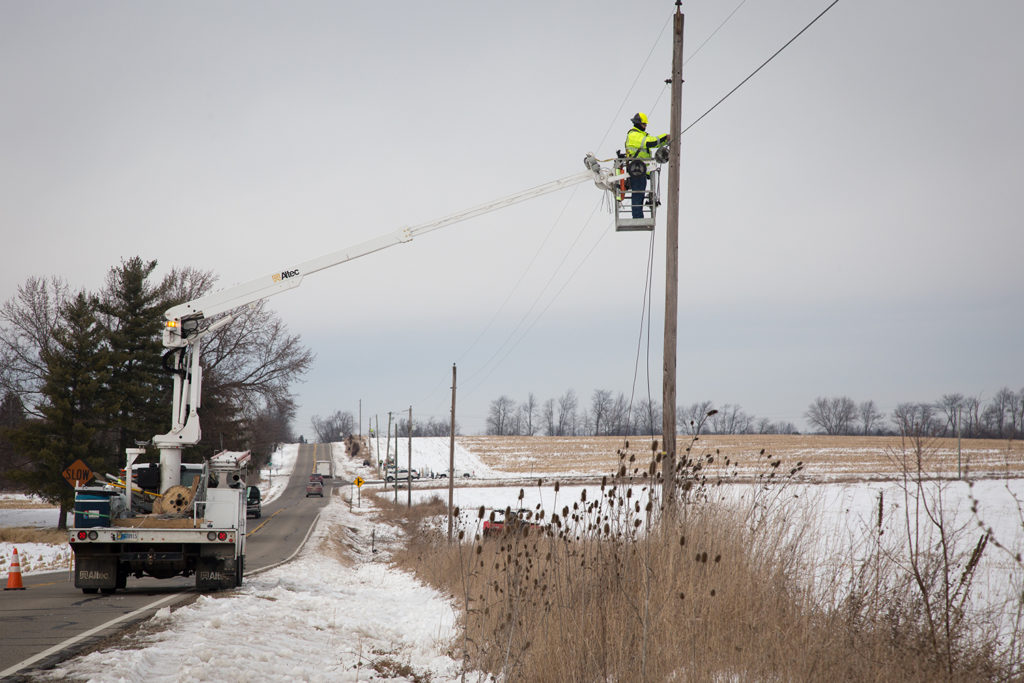
Electric cooperatives made a strong showing in the Federal Communications Commission’s largest reverse auction to fund rural broadband, winning bids expected to top $1.6 billion to serve over 900,000 locations in 31 states.
The FCC announced the winners of its Rural Digital Opportunity Fund on Dec. 7 and released initial details about how the first $9.2 billion in Phase I funding will be distributed over the next 10 years among the nearly 400 winning bidders.
Nearly $7 billion in unobligated Phase I funds will be added to $4.4 billion for a Phase II auction the FCC is expected to schedule once it has implemented more granular broadband data collection and mapping.
RDOF bidders pledge to provide broadband access to residents of census blocks determined by the FCC to be fully unserved in Phase I and partially served in Phase II.
Of the electric co-ops that participated in the Phase I auction, 180 competed as part of five consortiums that garnered a total of about $1.5 billion. Five individual electric co-ops won a total of $59.4 million.
Co-op Connections Consortium with 13 electric co-ops won bids in eight states; NRTC Phase I RDOF Consortium with 51 electric co-ops won bids in 14 states; RDOF USA Consortium or FiberRise with 21 electric co-ops won bids in five states; Prospero Broadband Consortium with about nine electric co-op won bids in three states; and Rural Electric Cooperative Consortium with 95 co-ops won bids in 22 states. These groups must divide the winning bids among the participating co-ops by Dec. 22.
The individual electric co-op winners were:
- Lutsen, Minnesota-based Arrowhead Electric Cooperative with $18 million to serve nearly 5,000 locations.
- Bandera, Texas-based Bandera Electric Cooperative with nearly $1.7 million to serve 534 locations.
- Cassville, Missouri-based Barry Electric Co-op with $14,500 to serve 26 locations.
- Grants, New Mexico-based Continental Divide Electric Cooperative with $38 million to serve nearly 8,500 locations.
- Roseau, Minnesota-based Roseau Electric Cooperative Inc. with nearly $1.3 million to serve 266 locations.
All winning bidders must file a detailed long-form application with the FCC between Jan. 14 and Jan. 29, 2021. Applications must include deployment plans specific to their RDOF awards and areas to be served. Over the 10-year disbursement of funds, the RDOF has set service milestones that include reaching every location assigned by the end of year six.
To enter the auction, bidders were required to select a speed tier established by the FCC. The allowable minimum speeds were 25 megabits per second for downloads and 3 Mbps for uploads.
The RDOF used a weighted tier system and other rules advocated by NRECA to ensure co-ops with superior service could compete against other types of internet providers with slower or spotty service in rural areas. Many electric co-ops deploying broadband use fiber-optic cable that provides the fastest, most reliable connection.
NRECA was also successful in recommending that the FCC auction small census blocks to ensure bid areas were near co-ops’ service territories and infrastructure to reduce build-out costs or delays.
The FCC lauded the auction as a way to deploy high-speed internet access to more than 5 million homes and businesses currently without service. In announcing the initial results, the commission said that “99.7% of these locations will be receiving broadband with speeds of at least 100/20 Mbps and more than 85% will get gigabit-speed service.”
NRECA continues to analyze the results of this huge auction and its impact on rural co-op members lacking access to broadband.
“There is cause to be excited about parts of the RDOF Phase I auction results, but in order for the auction to be considered a success it needs to deliver on its promises,” said Kelly Wismer, legislative affairs director at NRECA.
“For every American to have access to robust, affordable broadband, it’s critical that the FCC continue to do in-depth due diligence of all RDOF winners in a transparent way to ensure they can technically and operationally do what they have promised. Over 5 million Americans in rural communities depend on the FCC getting this right.”
Cathy Cash is a staff writer at NRECA.